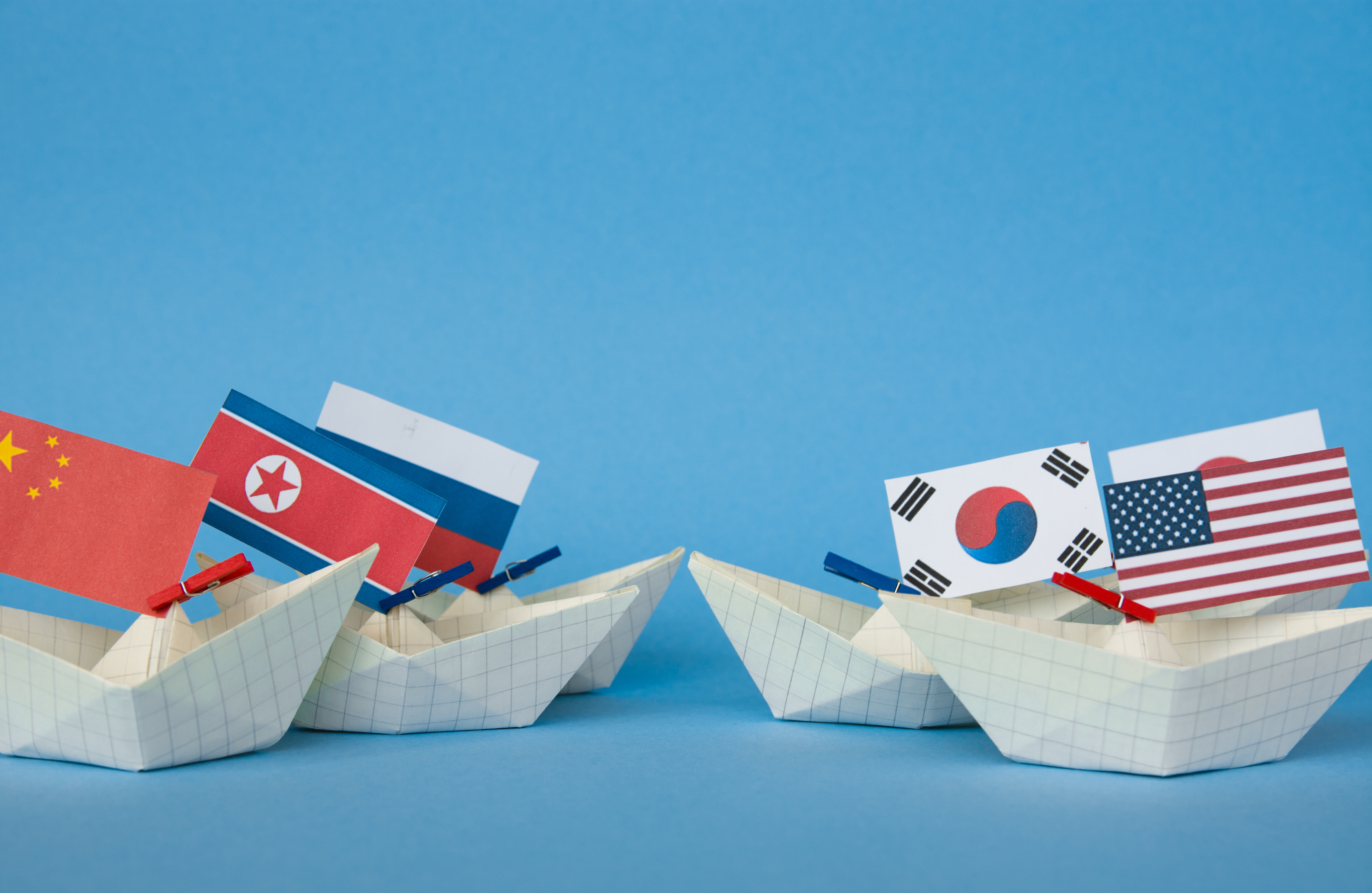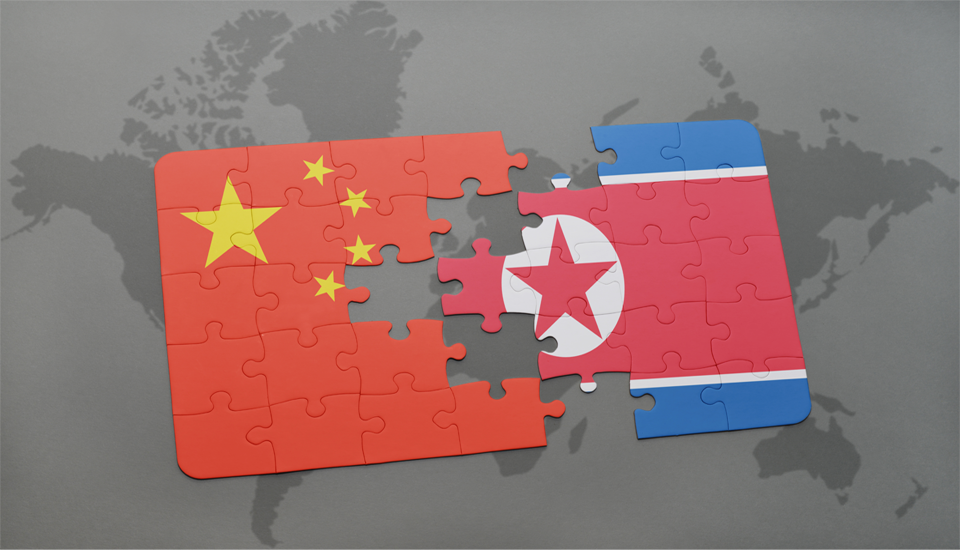
America’s Alliance First vs. DPRK’s “neo-Cold War” First: An Assessment on US-DPRK Relationship
Commentary | September 13, 2022
Li Nan
Senior Research Fellow at the Chinese Academy of Social Sciences Institute of American Studies
Li Nan, a Senior Research Fellow at the Chinese Academy of Social Sciences Institute of American Studies, criticizes the Biden administration’s North Korea policy as undermining the Korean Peninsula’s denuclearization process. Dr. Nan indicates that United States’ “alliance-first approach” puts North Korea on the opposite side of the US and closes the door to bilateral talks. And he points out that prioritizing alliance over denuclearization may hamper prospects of denuclearization as North Korea will highly likely rely on China and Russia and keep improving the conventional military system. Furthermore, he highlights the importance of effective coordination with North Korea by maintaining a favorable diplomatic conditions conducive to talks.
This has been an admission inside either US or DPRK that the other side had violated all agreements since the US-DPRK Agreed Framework in the 1990s. This means either US or DPRK considers that the other side had violated all agreements. All the agreements signed between the US and DPRK have not been effectively implemented so the US and DPRK have been extremely cautious when signing any new agreements in the foreseeable future and doubt the other party's intentions. The US believes that DPRK has always deceived the international community and will never give up nuclear weapons. DPRK, however, believes that the US will not abandon its hostile policy against them, even if the US verbally promises. Not only that but the US and DPRK also do not trust neighboring countries to stand on their side. The US believes that DPRK is a “puppet of China”, and only by putting pressure on China can force DPRK to submit. DPRK also does not trust the security guarantees of neighboring countries and is unwilling to entrust its destiny to major powers. Therefore, it is difficult for neighboring countries to actively participate in the dialogue between the US and DPRK. From the Clinton administration to the Trump administration, the US and DPRK have undergone long-term attempts through "bottom-up" and "top-down" without success, largely because the bureaucracy on both sides has had a rigid but “comfortable” conception of the other side. Such ideology and preconceived cognition already hindered the bilateral interaction with flexibility.
It can be safely believed that the Biden administration’s policy on DPRK had undergone a major adjustment. According to White House press secretary Jen Psaki’s announcement on the Biden administration’s policy review towards DPRK, The US policy towards DPRK is to “increase the security of the United States and our allies, and deployed forces,” and the US “have and will continue to consult with the Republic of Korea, Japan, and other allies and partners at every step along the way.” In its policy review on DPRK, the US has repeatedly mentioned coordination and cooperation with its allies. Actually, the Biden administration’s policy on DPRK is based on the consolidation of the U.S. Alliance in East Asia. Based on the value of the “Alliance First” over denuclearization, the implementation of the policy towards DPRK is doomed to be a failure.
For the Biden administration and the Yoon administration of ROK, how to evaluate the Singapore Declaration is an important starting point for the future developments of US-DPRK relations and ROK-DPRK relations. The Singapore Declaration defines a new model of US-DPRK relations. It is a framework document approved by the top leaders of the US and DPRK. If it is easily abandoned, it means that US-DPRK relations would return to the original vicious circle, also deeply influencing the relations between ROK and DPRK.
Unfortunately, the door is closed. Facing the competition of China and the U.S. and the solidification of the US -ROK-Japan Triangle, the DPRK has defined the world structure as a “neo-Cold War,” even though China and U.S. have not accepted and made efforts to prevent it, it is safe to assume that both will maintain this stance for the foreseeable future, and the possibility of a crisis on the Peninsula will increase.
On September 29th, 2021, Kim Jung-un made a speech at the 5th Session of the 14th Supreme People's Assembly of DPRK. He noted that “the structure of the international relations has been reduced to the structure of ‘neo-Cold War.’” Pointing out Biden’s new policy, he indicated that “the US is talking about ‘diplomatic engagement’ and ‘dialogue without preconditions, but it is no more than a petty trick for deceiving the international community and hiding its hostile acts and an extension of the hostile policy pursued by the successive US administrations.” Facing with the reshape of the US alliance and the intensification of China-US competition, DPRK has made a judgment of the international situation as “neo-Cold War”, in which DPRK has been on the opposition of the US side. Any US act toward DPRK will be regarded as “an extension of the hostile policy pursued by the successive US administrations”. With frustration with the Biden administration, the DPRK has almost shut down the window for the US.
Under the guideline of the “neo-Cold War” and the buildup of the US alliance in East Asia, the DPRK will act as followed:
1. More relies on China and Russia. Now the DPRK is fully committed to breaking through the economic bottleneck caused by sanctions and COVID-19 and will lean more on China and Russia for its economic recovery. Moreover, they are calling on “common threat” with China, such as their criticizing AKUS recently and supporting “the Chinese party, government, and people to defeat the hostile forces' frantic anti-China confrontational moves.” On August 1st, 2022, Ri Yong Gil, minister of National Defense of DPRK sent a message of greeting to China on the occasion of the 95th founding anniversary of the Chinese People's Liberation Army, calling for “closely wage strategic and tactic coordinated operations with the PLA to jointly guard peace and stability in the Korean peninsula and the rest of the world.”
2. Prepares on confrontation with US and ROK for long term. Although the DPRK currently still tests the intention of the new government of ROK, the distrust between the US and ROK will be going deep as the “understanding “of the “neo-Cold War” was intensified. Any move by one side seen to be detrimental to the other will be matched by retaliation and leads to crisis.
3. Keeps upgrading the conventional military. DPRK recently tested new long-range cruise missiles to prevent ROK and the US from taking preemptive strikes against DPRK missile launches. Following up on the ongoing post-Eighth Party Congress five-year plan, the military keeps improving the conventional military system, and an intensive arms race has been looming up on the Korean Peninsula.
4. Stabilizes the Korean peninsula. Although DPRK prepares for the confrontation with ROK, they won’t like to see conflicts with ROK being larger and uncontrolled. DPRK had learned during the Cold War era that any crisis will possibly make larger conflicts even wars run by the great powers. DPRK should not make it happen.
From above, the policies run by the US and DPRK are undermining the process of the denuclearization of the Korean peninsula. The AUKUS’s recent export of nuclear submarines to Australia, for instance, has directly led to the loosening of the international non-proliferation mechanism. The UN Security Council resolution generally opposes the development of the ballistic missile technology of DPRK without distinguishing whether the missile carries a nuclear warhead or a conventional warhead. The reason is that it is extremely difficult to distinguish nuclear weapons from conventional dual-use weapons. Australia’s acquisition of nuclear submarines, even if for the conventional military, is in contradiction with the norms formed in the process of the denuclearization of the Korean peninsula.
Engagement with the DPRK requires effective coordination. Every actor with a vested interest in the peaceful resolution of the DPRK issue should avoid unnecessary actions and rhetoric that counterproductively increase tensions. If denuclearization is not a realistic goal in the short-term, the parties should maintain an amicable atmosphere conducive to talks, like encouraging the promotion of relations between the two Koreas. The multilateral approaches should also be restarted. Specific plans should be on the table.
■ Li Nan is a senior research fellow at the Chinese Academy of Social Sciences Institute of American Studies. His research mainly focuses on U.S-North Korea relations and China-North Korea relations. Dr. Li has been a visiting Scholar at Seoul National University(2014-2015), Brookings Institution(2012), Johns Hopkins SAIS(2011-2012), and Arizona State University (2004-2005) and also frequently visited the Korean Academy of Social Sciences and Kim Il Sung University (DPRK). He is a graduate of the Renmin University of China where he earned a PhD in National Strategy, MA in International Relations & Political Science, and BA in International Politics & Political Science.
■ Typeset by Junghoo Park, Research Associate
For inquiries: 02 2277 1683 (ext. 205) | jhpark@eai.or.kr
International Relations

Reviewing 30 Years of “China’s Role” in North Korea’s Nuclear Issue
Dong Ryul Lee | 16.August.2022
Tokyo’s View on the Korean Peninsula and Regional Security
Ryo Sahashi | 27.July.2022

A Study on Humanitarian Aid to North Korea
Juhyun Um | 21.July.2022
LIST